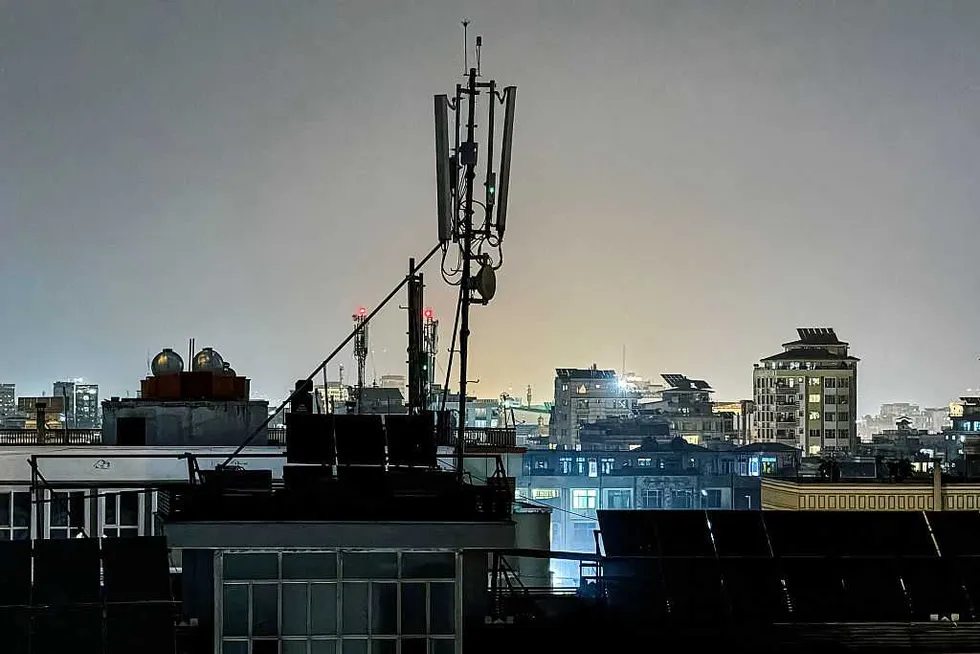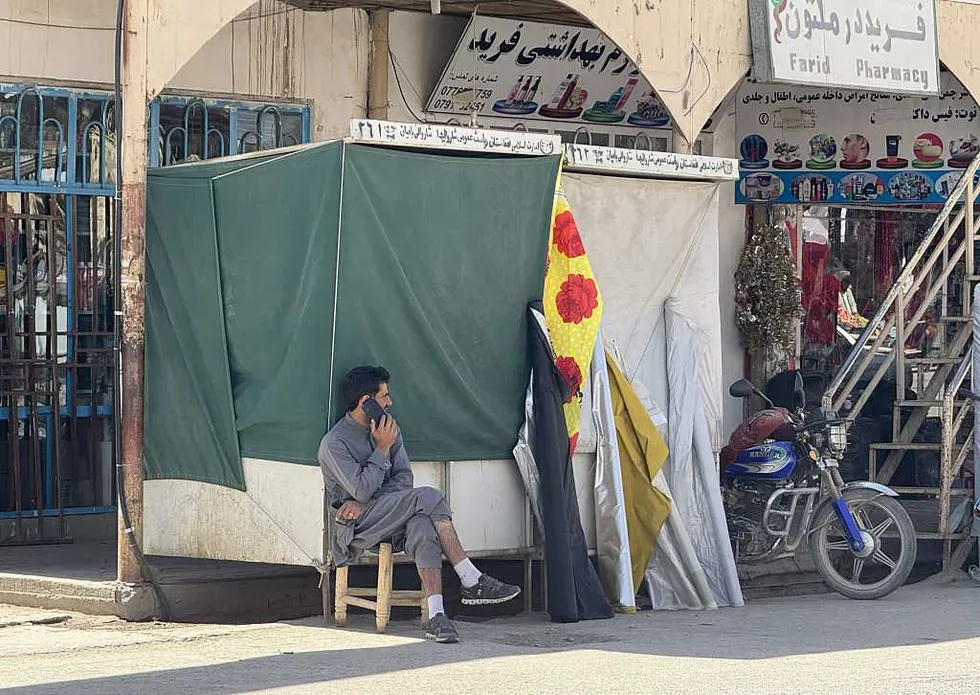
Photo by MOHSEN KARIMI/AFP via Getty Images

The blackout impacted women using online learning after being banned from education if over the age of 12.
The Taliban has denied shutting down its tech sectors after residents went 48 hours without cellphone or internet service.
The largest phone service providers, the foreign-owned Roshan and Etisalat, were restored on Wednesday afternoon after internet, satellite television broadcasts, and even flight operations were disrupted.
'This measure was taken to prevent immorality.'
According to the Independent, not only were at least five flights at Kabul airport canceled, but banking operations were also affected during the shutdown.
The reports of a shutdown started with an X post on Monday by NetBlocks, which wrote that Afghanistan is "now in the midst of a total internet blackout as Taliban authorities move to implement morality measures, with multiple networks disconnected through the morning in a stepwise manner; telephone services are currently also impacted."
When asked, the Taliban had a different story. The ruling terrorists said the internet blackout was simply a case of "decaying fiber-optic infrastructure" and any inference that it was part of a ban were just "rumors."
According to the Taliban, the regime was just replacing the broadband internet infrastructure, which caused interruptions in service.
What paints the claim with uncertainty, however, is the fact that the Taliban openly cited morality as a reason to cut off internet access to residents just a few weeks prior.
RELATED: Trump reveals why the US is trying to get back Bagram Air Base

In mid-September, outlets reported that the Taliban banned fiber-optic internet in the Northern Afghan province of Balkh.
The province, which sits on the southern border of Uzbekistan, left government offices, private residences, and public institutions without Wi-Fi, all in the name of morality.
"This measure was taken to prevent immorality, and an alternative will be built within the country for necessities," said Haji Attaullah Zaid, a provincial government spokesman, according to Gulf Today.
The spokesman said there was a "complete ban" in the province by order of Hibatullah Akhundzada, the leader of the Taliban. No reason was given as to why only Balkh was cut off from the world wide web.

During the shutdowns, the BBC ran multiple stories about Afghan women being cut off from online learning, their only option for advanced knowledge since they are banned from receiving formal education after the age of 12.
The Muslim regime has also removed any books written by women from its universities, which, according to the BBC, was part of a ban on teaching about human rights and sexual harassment.
Approximately 140 books were allegedly found to be of "concern" to the Taliban, which found them to be "anti-Sharia" and violating "Taliban policies."
Like Blaze News? Bypass the censors, sign up for our newsletters, and get stories like this direct to your inbox. Sign up here!
Andrew Chapados